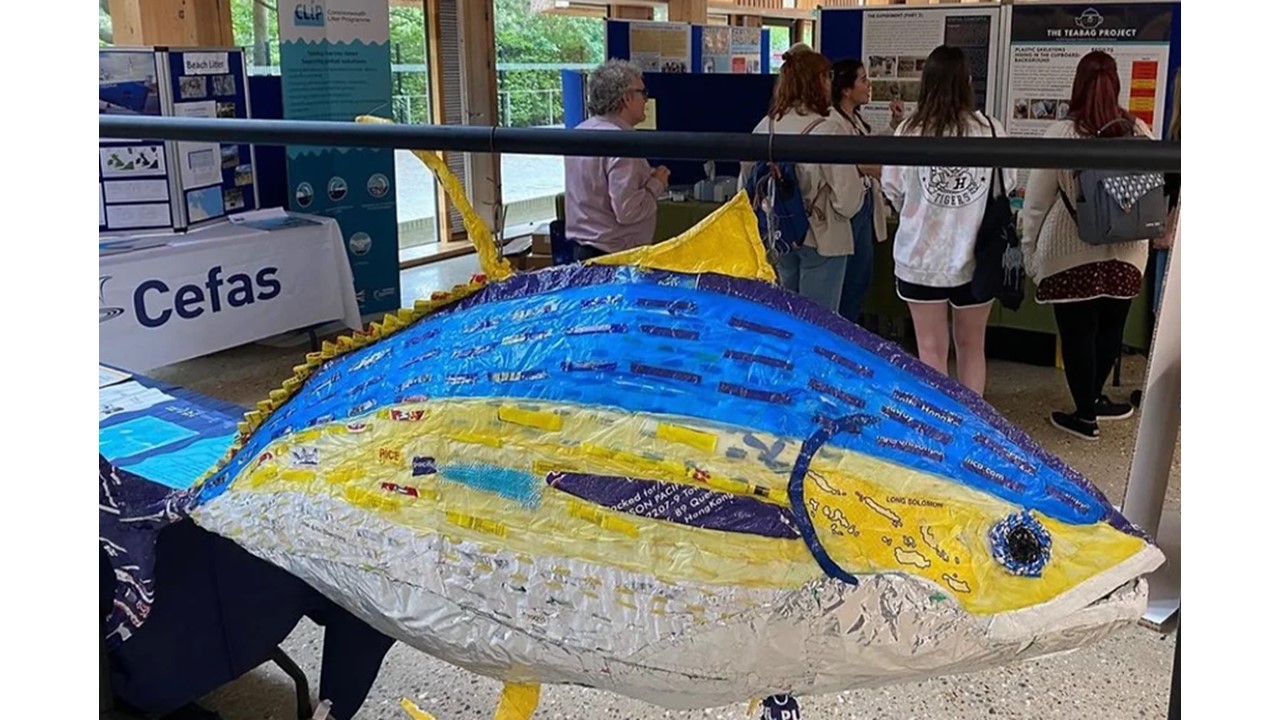Problems with plastics explored as part of UEA Green Film Festival
Films, exhibits and workshops were on display as part of a free event focused on plastics and the impacts they have on our environment.
By Andrew Mayes, Professor of Analytical and Materials Chemistry at the University of East Anglia (UEA)
'A Plastic Journey: Science, Society and Solutions' took over the foyer of one of Britain's greenest buildings, the Enterprise Centre at UEA, to educate attendees at the university's Green Film Festival.
The 21 May exhibition showcased many aspects of both the brilliance and the problems of plastics in the modern world. While illustrating the wonder and variety of plastics and their properties and uses, this event also highlighted the environmental problems that inappropriate use and disposal of plastic waste cause, and some practical solutions and visions for the future.
Visitors could talk to PhD students about their research work involving microplastics, with many 'show and tell' exhibits, including testing their favourite tea bag to see if it contained plastic, using a portable IR spectrometer. Read more about this on Elettra Spandola’s blog.
Representatives from Cefas discussed its work on marine litter around the world (where two-metre-long models of a manatee and a tuna made from plastic waste provided a highly visual focus for discussion) and there were also stands from NGOs and local enterprises involved in plastic waste, recycling and mending/upcycling to avoid fast fashion.

Look out for new street furniture made from recycled bottle tops in Great Yarmouth in the coming months, once Precious Plastics East is fully up and running. UEA chemistry student Ryan Forrest demonstrated how thermoplastic starch (a green alternative to polythene) is made and debunked some common greenwashing myths around bioplastics.
We also featured the 'Big Plastic Count', a Greenpeace initiative to collect data on plastic waste disposal around the country, which ended on the day of the exhibition. Around 190,000 people took part in that initiative, which provided valuable data for advocacy and policy development and opened many minds to the large amounts of plastic waste we typically generate (even when we try not to).
A representative from MIND attended to talk with visitors about eco-anxiety, part of a wider UEA project around this theme. There were also participatory workshops on ecofeminist craftivism and environmental filmmaking.
The film festival itself screened Liz Bonnin’s documentary 'Drowning in Plastic', which was one of the seminal wake-up calls explaining the impact of plastic waste around the world. This was followed by 'An Audience with Liz Bonnin', where she provided a highly engaged and passionate explanation of her work around environmental activism and what needs to change globally to fix some of the major issues facing us as humans – a real treat for all those who attended.
I also gave a lecture about microplastics: what they are, where they come from and how we try to detect them. This was followed by a long and lively Q&A session, which evolved into a stimulating audience discussion.
The event was supported by a generous grant from the RSC Outreach Fund. It was also boosted by the involvement of the East Anglian region of the RSC Analytical Division, who donated thermochromic mugs that were given away on the teabag stand and cotton tote bags that were distributed from the exhibit about 'bags for life'. (Did you know that the average household bought 54 plastic 'bags for life' in 2019! – part of the law of unintended consequences…)
I would like to thank GFF director Dr Christine Cornea, the whole GFF organising team and many others who contributed in various ways to make this event a big success.

